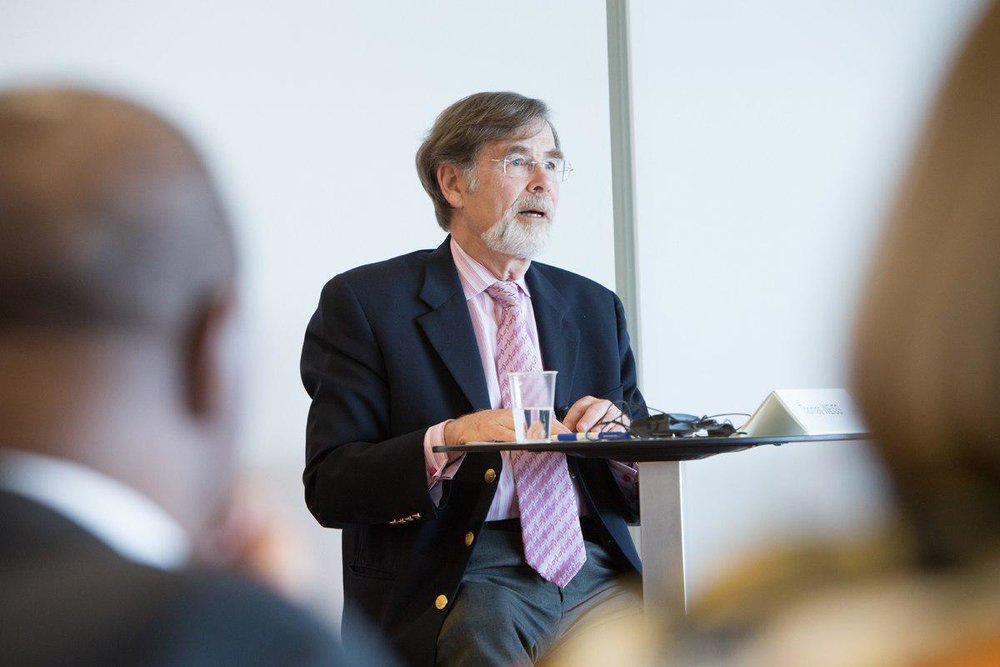Ukraine war is the ‘post-post-Cold War’ world: professor

TEHRAN - A scholar of international relations and global governance believes that the world has entered the “post-post-Cold War” phase after the Ukraine war.
Pointing to Russia’s ambition to restore its great-power status, Thomas G. Weiss tells the Tehran Times that “this is the post-post-Cold War world.”
Russia’s military operations in Ukraine and the inability of the West to confront it directly have raised questions about the future of the world order.
Some political observers believe that it was a turning point in which Moscow has changed the course of post-Cold War history. America is no longer the great power that ruled the world without any significant competitor; Russia and China are challenging traditional global hegemony.
However, Western scholars aspire that the Ukraine war awakens Western powers and reunite them against the Eastern threats.
“I am hoping that the sleepy and lazy and un-military Europe joins an awakened West (not just the U.S. but Canada, Australia, New Zealand, and Japan) to recognize that Russia aspires to restore its great-power status,” Weiss emphasizes.
Following is the text of the interview:
Q: What are the implications of the Ukraine crisis for the world? The Security Council can't issue a resolution and Western powers don't dare to be engaged in a direct conflict with Russia.
I am hoping that the sleepy and lazy and un-military Europe joins an awakened West (not just the U.S. but Canada, Australia, New Zealand, and Japan) to recognize that Russia aspires to restore its great-power status. This is the post-post-Cold War world.
Q: Do you think the world is witnessing the birth of a new world order, given what is going on in Ukraine? Once upon a time, the U.S. could invade other countries without a serious reaction from the global community. Now it's Russia's turn.
A: Great powers often get away with what they wish despite norms—think China in Xinxiang. Iraq’s invasion of Kuwait had unanimous condemnation in the SC and an appropriate response. It is impossible under the UN Charter to take a decision to counter one of the P5.
Q: Are Western powers who were involved in invasions against Afghanistan, Iraq, Libya, and others entitled to oppose Russia's military operations in Ukraine? Isn't it a double standard?
A: You’re lumping too many things together. 1991-2 Iraq war was justified but 2003 was not. Libya had approval from the SC, and Gaddhafi menaced civilians under R2P. Double standards are better than single standards if the single is to do nothing ever.
Q: We see a massive sympathy from the West for the Ukrainians while the world has been witnessing the tragedy in Yemen under the Saudi-led war since March 2015? Don't you think we are facing a kind of discrimination in reactions to catastrophes? If you are white or Western you will enjoy sympathy but if you are Muslim that would be normal to suffer.
A: The willingness to react more quickly to one’s kith and kin is a universal human one. That said, the reactions to the humanitarian plight of Yemenis and Syrians have been appalling and to be condemned.
Q: Given China's position coupled with the Arab states’ reluctance to back the U.S. moves against Russia for its attack on Ukraine, don’t you think that Ukraine would turn into a scene of confrontation between the West and the East?
A: China and India and UAE “abstaining” in the SC was revolting. They are usually the defenders of sacrosanct state sovereignty. The vote in the GA was nonetheless rather indicative of world sentiment, only 5 against and quite of few cowardly abstentions.
Leave a Comment